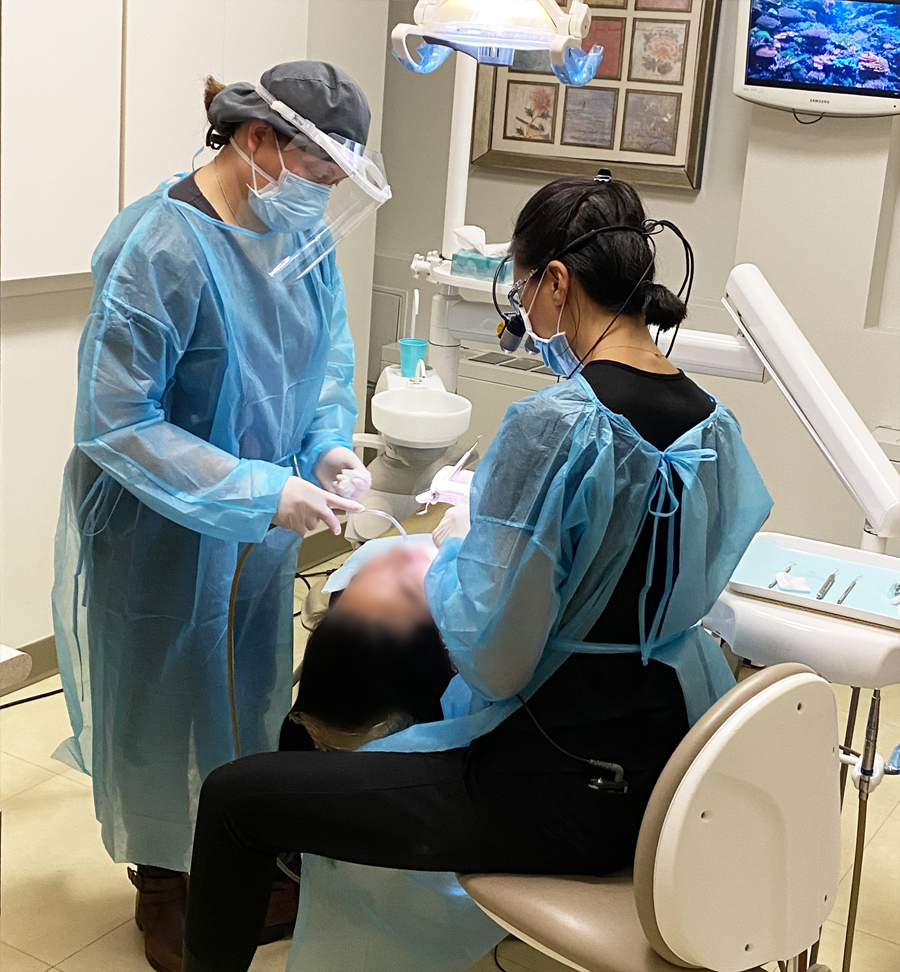Discover Frequent Oral Issues Your Dental Professional Can Solve
Understanding regular oral problems is vital for preserving optimal oral health. Problems such as tooth cavities, gum condition, tooth level of sensitivity, halitosis, and tooth decay are usual yet typically overlooked until they become serious. Dental experts possess the competence to identify and treat these conditions, therefore preventing additional problems. Routine dental gos to and personalized treatment plans can deal with these problems effectively, ensuring a much healthier and brighter smile. What specific therapies do dental practitioners use to combat these concerns, and just how can early intervention make a difference? The response to these inquiries supply useful understandings right into securing your oral wellness.
Cavities
Tooth cavities, also referred to as cavities, are a widespread dental health issue triggered by the demineralization of tooth enamel due to acid manufacturing from bacterial plaque. This procedure begins when bacteria in the mouth metabolize sugars and starches from food, producing acids that wear down the enamel. If not addressed immediately, this erosion can permeate deeper into the tooth, impacting the dentin and eventually the pulp, possibly leading to extreme discomfort and infection.
The early phases of cavity development usually present as white places on the tooth surface area, showing first demineralization. As the process proceeds, these places can become black or brownish lesions, signifying a lot more substantial decay. Routine dental examinations are crucial for very early detection, as cavities in their nascent phases can be treated with remineralization techniques, such as fluoride therapies.
When a tooth cavity has created, corrective treatment is essential. Dental experts generally get rid of the decayed portion of the tooth and load the dental caries with products such as composite resin, amalgam, or ceramic. In more severe situations, a crown or origin canal treatment might be needed. Safety nets, including great dental health techniques and nutritional adjustments, play an essential role in reducing the danger of cavities.
Gum Illness
While dental caries stand for a substantial concern for dental health and wellness, an additional crucial concern that demands interest is periodontal illness. Known as gum disease, gum tissue illness is an inflammatory problem influencing the tissues surrounding and supporting the teeth. It is mostly brought on by the buildup of plaque-- a sticky movie of germs that bases on teeth.
Periodontal illness advances with phases, starting with gingivitis, identified by redness, swelling, and bleeding gums (eugene dentist). If left without treatment, gingivitis can intensify to periodontitis, where the inner layer of the periodontal and bone retreat from the teeth, creating pockets that end up being infected. Over time, the toxins created by the microorganisms damage down the bone and connective tissue that hold teeth in place, potentially resulting in missing teeth
Very early detection and treatment are vital. Professional oral cleanings and improved oral health methods, such as brushing two times daily and flossing, can handle gingivitis. For more advanced stages, treatments may include scaling and origin planing, anti-biotics, or even surgical treatments.
Routine oral check-ups play a crucial role in taking care of and avoiding periodontal illness. Dental professionals can determine early indications and advise appropriate treatments, ensuring the upkeep of healthy and balanced gums and overall oral wellness.
Tooth Level Of Sensitivity
Tooth sensitivity affects countless people worldwide, presenting an usual yet frequently traumatic oral concern. This problem develops when the enamel, the outermost protective layer of the teeth, is jeopardized, revealing the underlying dentin. The dentin has microscopic tubules that lead directly to the oral pulp, where nerves stay. When revealed to stimulations such as warm, cool, sweet, or acidic substances, these nerves are triggered, triggering sharp pain or pain.
A number of factors add to enamel erosion and subsequent tooth level of sensitivity, including hostile brushing, acidic foods and beverages, gum economic crisis, and bruxism (teeth grinding) Additionally, oral treatments such as teeth whitening can momentarily increase level of sensitivity.
Poor Breath
Another widespread dental issue that affects people' day-to-day lives is poor breath, medically called halitosis. Halitosis often originates from poor oral hygiene, which enables food particles to remain in the mouth, fostering bacterial growth.
Suggestions may include enhancing oral hygiene techniques, such as normal cleaning and flossing, utilizing antibacterial mouthwashes, staying moisturized, and addressing any kind of oral problems. Effective management of bad breath not just improves oral wellness yet likewise important source dramatically improves high quality of life.
Dental Cavity

Avoiding dental caries includes a mix of excellent dental health techniques and normal oral check-ups. Brushing teeth at the very least twice daily with fluoride toothpaste, flossing to eliminate plaque in between teeth, and restricting the consumption of sweet foods and beverages are important safety nets. Fluoride therapies, oral sealers, and professional cleanings offered by a dentist can also play a substantial visit function in strengthening enamel and protecting against decay.
Dentists can remove corroded cells and restore the tooth with dental fillings made from materials such as composite resin, amalgam, or porcelain. By resolving tooth decay quickly, dentists assist preserve oral structure and feature, guaranteeing long-term dental health.
Verdict
Attending to common oral issues such as dental caries, periodontal condition, tooth sensitivity, halitosis, and tooth degeneration is important for maintaining ideal oral health and wellness and general health. Dentists have the knowledge to detect and treat these concerns properly, making sure tailored care for each person. Routine oral exams and safety nets are crucial in recognizing and managing these issues early, advertising a much healthier and more positive smile over a life time.

Tooth degeneration, additionally recognized as oral cavities, takes place when the enamel, the outermost layer of the tooth, is deteriorated by acids created by microorganisms in the mouth. Brushing teeth at the very least twice daily with fluoride tooth paste, flossing to get rid of plaque between teeth, and restricting the intake of sugary foods and beverages are crucial preventative actions.Resolving common oral issues such as cavities, periodontal disease, tooth level of sensitivity, negative breath, and tooth degeneration is important for maintaining ideal dental health and wellness and total well-being.